SERVICES
3 Crimes You Might Be Surprised to Learn Are Felonies in Florida
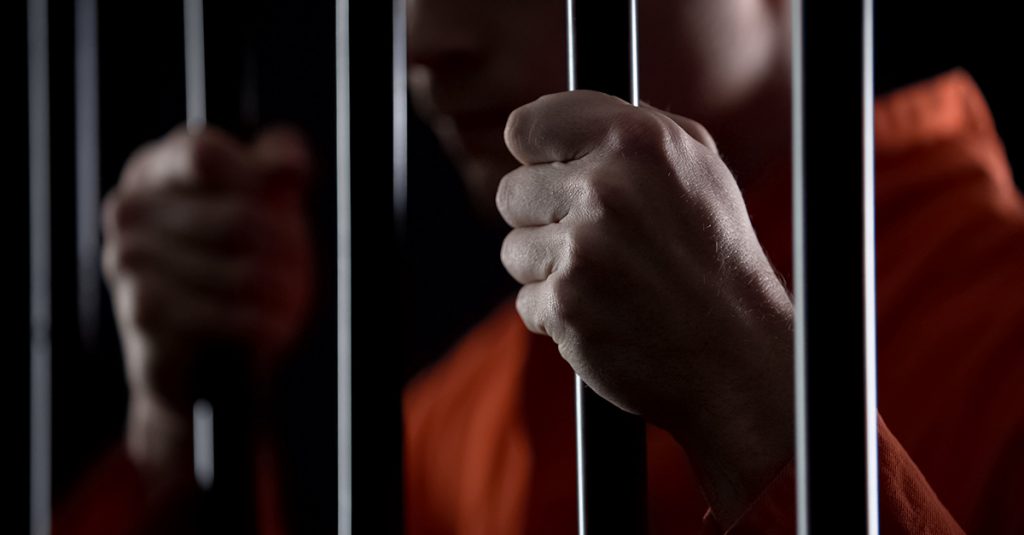
Committing a felony in Florida can come with steep consequences, often resulting in jail time and fines. However, avoiding felony charges may be difficult when there are some that are hiding in plain sight. In this article, a felony defense lawyer in Tampa with The Rickman Law Firm shares three crimes you may be surprised to learn are felonies in the state of Florida.
Related: Under Arrest? Here’s Some Advice.
Altering a State Lottery Ticket
Florida Statute 24.118(3)(a) states: “Any person who:
(a) Knowingly presents a counterfeit or altered state lottery ticket;
(b) Knowingly transfers a counterfeit or altered state lottery ticket to another to present for payment;
(c) With intent to defraud, falsely makes, alters, forges, passes, or counterfeits a state lottery ticket; or
(d) Files with the department a claim for payment based upon facts alleged by the claimant which facts are untrue and known by the claimant to be untrue when the claim is made;
is guilty of a felony of the third degree, punishable as provided in s. 775.082, s. 775.083, or s. 775.084.” Altering a lottery ticket might seem like it is not a big deal, but it can result in jail time and steep fines.
Tampering, Adjusting, or Changing a Vehicle Odometer
Odometer fraud is often committed in order to attempt to sell a vehicle for a higher amount than it is worth. In fact, the National Highway Traffic Safety Administration (NHTSA) concluded that roughly 450,000 vehicles are sold annually with false odometer readings, ultimately costing buyers over $1 billion in service fees. For this reason, tampering with an odometer carries a felony charge — even if you are the legal owner of the vehicle. Florida Statute § 319.35(1)(a) defines odometer fraud as the following:
“It is unlawful for any person knowingly to tamper with, adjust, alter, set back, disconnect, or fail to connect an odometer of a motor vehicle, or to cause any of the foregoing to occur to an odometer of a motor vehicle, so as to reflect a lower mileage than the motor vehicle has actually been driven…”
Florida law also strictly prohibits supplying a written odometer statement knowing that the information is false.
Interfering with a Railroad Signal
Interfering with railroad signals, even if done as part of a prank, is a serious felony. Railroad signals are an important factor in keeping drivers safe, and, as such, altering or interfering with a railroad signal is a felony punishable by jail time and fines. Florida Statute 860.08 states:
“Any person, other than an employee or authorized agent of a railroad company acting within the line of duty, who knowingly or willfully interferes with or removes any railroad signal system used to control railroad operations, any railroad crossing warning devices, or any lantern, light, lamp, torch, flag, fuse, torpedo, or other signal used in connection with railroad operations is guilty of a felony of the third degree, punishable as provided in s. 775.082, s. 775.083, or s. 775.084.”
Contact a Felony Defense Attorney in Tampa
Committing a felony of any kind can carry serious consequences that will interfere with your life and your family. This is why you should contact a felony defense lawyer in Tampa with The Rickman Law Firm as soon as possible. A skilled attorney will answer all of your questions and discuss the best defense for your unique case.
For a free consultation with a felony defense lawyer in Tampa, please contact The Rickman Law Firm today.
Disclaimer: The information contained in this article is for general educational information only. This information does not constitute legal advice, is not intended to constitute legal advice, nor should it be relied upon as legal advice for your specific factual pattern or situation.
Accused of Being Involved in a Ponzi Scheme? Here’s What to Do Next.
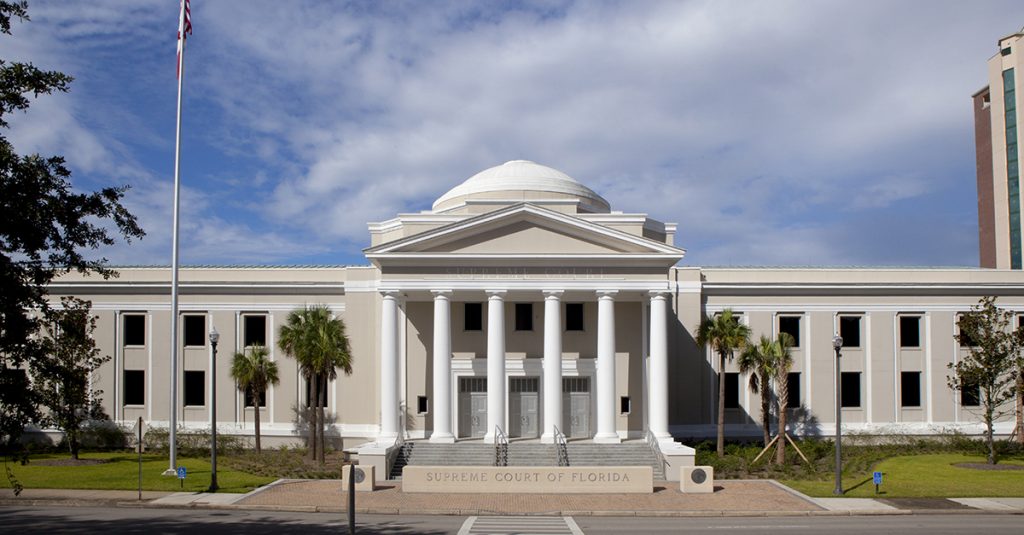
Ponzi schemes, also called pyramid schemes, are often the punchline of the joke. You may think of timeshare salespeople, investing schemes, or multi-level marketing (MLM) companies, and, in many cases, you might be correct. But what you might not know about Ponzi schemes is that they are a federal crime. In this article, a federal criminal defense attorney in St. Petersburg with The Rickman Law Firm discusses how you may be inadvertently caught in a Ponzi scheme and how to protect yourself if you are under federal investigation.
Related: Common White Collar Federal Crimes
What Is a Ponzi Scheme?
How You Can Be Inadvertently Guilty in a Ponzi Scheme
Many people get caught up in a Ponzi scheme after investing a significant amount of money and being duped into recruiting others. In many instances, people who begin as victims become so wrapped up in the scheme that they become guilty. However, in most cases, those charged in Ponzi schemes are the ones at the top of the pyramid who are responsible for starting the scheme in the first place. Still, it is possible to be charged even if you did not create the idea for the scheme.
What to Do If Accused of Crimes Involving Ponzi Schemes
The most important thing you can do if you are being investigated for any federal crime, especially crimes involving Ponzi schemes, is to contact a federal criminal defense lawyer in St. Petersburg. Contacting a defense attorney does not mean that you are guilty and, although there is a stigma surrounding hiring legal counsel, hiring an attorney does not implicate you in the crime. Rather, it provides you the opportunity to understand the best defense possible for your unique situation, which is crucial in any white collar crime.
That’s why, if you stand accused of being part of a Ponzi scheme, you should get in touch with a federal criminal defense attorney in St. Petersburg with The Rickman Law Firm as soon as possible. Your attorney will help you understand your rights and the best legal defense for your case.
For a free consultation with a federal criminal defense lawyer in St. Petersburg, please contact The Rickman Law Firm today.
Disclaimer: The information contained in this article is for general educational information only. This information does not constitute legal advice, is not intended to constitute legal advice, nor should it be relied upon as legal advice for your specific factual pattern or situation.
Common Federal Cybercrimes

Cybercrime impacts people across state lines, and, as such, they are under federal jurisdiction. The term “cybercrime” encompasses a great number of crimes, but there are a few that are more common than others. In this article, a federal defense attorney in St. Petersburg with The Rickman Law Firm shares the four most common federal cybercrimes and how to protect yourself if you are wrongfully accused of committing one.
Related: What You Need to Know About the Rise of Coronavirus-Based Cybercrime
Ransomware
The Federal Bureau of Investigation (FBI) commonly monitors situations of ransomware in which you receive or send a spam email with an attachment. If you click on the link, you may be allowing a ransomware code to redirect you to a website that contains software designed to infect your computer and encrypt your personal information. Subsequently, online ransom messages instructing the victim of how to pay to decrypt the information, usually through Bitcoin, are also classified as ransomware.
Ransomware does not just target individuals but business enterprises as well. For example, if an employee using a VPN and shared drive opens a ransomware attachment, it can infect every folder within the network. This results in hundreds or even thousands of gigabytes of important data lost and puts businesses at major risk of losing important information to those who should not access it. In some cases, businesses choose to pay the attacker and still will not get the data back.
Computer Trespassing
Typically associated with hackers, computer trespassing is defined as accessing, altering, deleting, damaging, destroying, or disrupting any computer, computer system, computer network, computer program, or data intentionally and without authorization.
Computer trespassing is not the way it sounds in the movies. It does not need to be done in the middle of the night by masked hackers, and it doesn’t always involve a bank heist or some other dramatic scheme. Instead, it can be as simple as a disgruntled employee (or former employee) entering a company’s servers and deleting important files. It may seem like a prank or not a big deal, but it is a federal crime.
Related: What Is a Federal Cybercrime?
Phishing Scams
Website Spoofing
Website spoofing is a major issue during political campaigns because it often results in people giving money to scammers while thinking that they are donating to a political candidate’s campaign. But, what is website spoofing? Website spoofing is the act of creating a website with the intention of misleading visitors to think that the page or website is owned by someone else. Normally, the spoof website will adopt the design of the target website and sometimes has a similar URL.
Committing any type of cybercrime can carry serious consequences, even if you did not intend to commit the crime in question. If you stand accused of a federal cybercrime, contact the best federal defense attorney in St. Petersburg with The Rickman Law Firm as soon as possible.
For a free consultation with the best federal defense attorney in St. Petersburg, please contact The Rickman Law Firm today.
Disclaimer: The information contained in this article is for general educational information only. This information does not constitute legal advice, is not intended to constitute legal advice, nor should it be relied upon as legal advice for your specific factual pattern or situation.
How Domestic Violence Charges Can Impact Future Custody Arrangements

In 2019, 105,298 crimes of domestic violence were reported to Florida law enforcement agencies resulting in 66,069 arrests, according to the Florida Department of Children and Families. This number has only increased during COVID-19 lockdowns due to increased stress and isolation. If you have been accused of domestic violence, it can be incredibly frustrating and, when you have children to consider, the charges can have even more serious consequences.
In this brief article, a domestic violence defense attorney in Tampa with The Rickman Law Firm shares the impact a domestic violence charge can have on your family and potential custody arrangements, as well as the best way to defend yourself against these serious charges.
Related: How a Domestic Violence Conviction Can Turn Your Life Upside Down
Can False Accusations of Domestic Violence Result in Custody Issues Later?
Domestic violence accusations and charges are typically brought up in a custody proceeding. However, whether or not they result in automatic changes to a custody agreement or future custody challenge is up to the jurisdiction and the specific judge in the case.
In Florida, custody decisions begin with the presumption that both parents should share custody unless it would be detrimental to the child. However, that changes if a parent has been convicted of a misdemeanor domestic violence charge or worse because the courts then presume that it would be detrimental to the child to give that parent custody. The parent who is charged or convicted with domestic violence then has the burden of proof to the court that he or she should share custody and visitation with the other parent.
A judge will examine the domestic violence charges and will take into account several factors, including:
- whether the child or children were present or involved in the incident;
- if drugs or alcohol were involved;
- if charges were dropped or dismissed; and
- the psychological impact that domestic violence had on the child or children
This is handled through family court; however, domestic violence is handled in criminal court proceedings. For this reason, it’s crucial to defend yourself and clear your name of domestic violence charges, especially if you plan to maintain or gain custody of your child or children.
Related: Frequently Asked Questions Related to Domestic Violence
How to Defend Against False Accusations of Domestic Violence
Even if you have been falsely accused, Florida law stipulates, “It is the intent of the Legislature that domestic violence be treated as a criminal act rather than a private matter.” Essentially, the prosecution has the right to pursue a more severe charge, like an aggravated assault charge, as it will result in a felony and more severe penalty.
The first step in navigating the murky and often confusing waters of domestic violence charges is to contact a domestic violence defense lawyer in Tampa with The Rickman Law Firm. It is possible to overcome a false domestic violence charge; however, you will likely be facing an uphill battle which an attorney can help you through. It’s important to deal with the charges of domestic violence before ever entering family court to seek custody of your children.
For example, in order to protect your rights, you will need to file a petition for an injunction for protection against domestic violence. This may result in mutual restraining orders. And while you may then undergo intense investigation, you must never divulge information to opposing counsel, police, or the accuser that can be twisted and used against you.
If you have been arrested on a charge of domestic violence, we cannot stress enough the importance of immediately hiring a domestic violence defense attorney in Tampa. We have years of experience working with cases just like yours, a unique understanding of how domestic violence cases are prosecuted, and will be able to pursue all necessary evidence and witnesses to obtain a favorable outcome. Our attorneys will not only look into the event, but will also examine the arrest to determine if your rights were violated.
For a free consultation with a domestic violence defense lawyer in Tampa, please contact The Rickman Law Firm today.
Disclaimer: The information contained in this article is for general educational information only. This information does not constitute legal advice, is not intended to constitute legal advice, nor should it be relied upon as legal advice for your specific factual pattern or situation.
How Victim Resistance Can Impact Robbery Charges
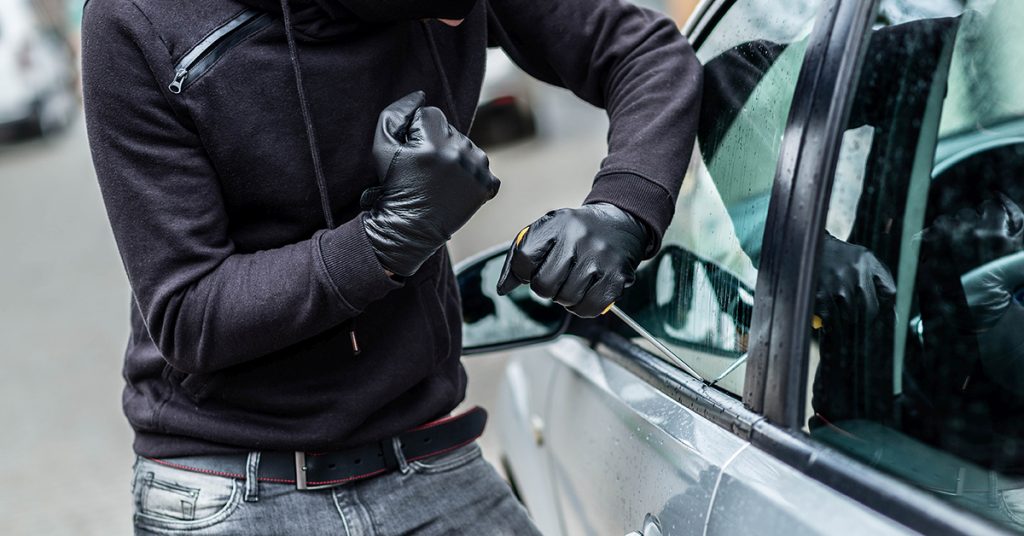
Robbery charges are complicated enough, but the charges can become even more complex when you add in victim resistance. In this brief article, a robbery defense attorney in Tampa with The Rickman Law Firm shares a few basics about robbery charges and what to do in the case of victim resistance.
Related: Everything You Need to Know About Armed Robbery in Florida
What Is the Legal Definition of Robbery?
Under Florida Statute 812.13(1), the term “robbery” means “the taking of money or other property which may be the subject of larceny from the person or custody of another, with intent to either permanently or temporarily deprive the person or the owner of the money or other property, when in the course of the taking there is the use of force, violence, assault, or putting in fear.”
Robbery charges are felonies that fall under the following classifications:
- First Degree: Robbery committed with a firearm or any deadly weapon.
- Second Degree: Robbery committed without a firearm or any deadly weapon, also called “Strong Arm” robbery.
These are further broken down into categories depending on the location of the robbery as well as the type of property which is alleged to be stolen:
- Sudden Snatching: Taking a person’s property while the victim is aware of the act. For example, stealing a woman’s purse from her person and running.
- Home Invasion: Entering someone’s home while occupants are present with the intention and actually committing robbery.
- Carjacking: Taking a vehicle from someone by force, fear, violence, or assault. Whether or not a firearm or deadly weapon is used, this could lead to a first-degree felony conviction.
What Is Victim Resistance and How Does it Complicate Robbery Charges?
For the incident to be robbery, another person must be involved and have been a victim of “use of force, violence, assault, or putting in fear.” In most cases, the victim does not resist during a robbery in order to protect themselves. But, in some cases, the victim chooses to fight back and may injure the accused party in the process. These instances, although rare, create a conundrum in the courtroom.
The most recent analyses of victimization retrieved from the National Crime Victimization Survey make it clear that resistance against robbers is not random but instead reflects choices and consideration of situational cues and risks on the part of the victim. These calculated considerations may be seen as self-defense and indeed may be protected by “Stand Your Ground” laws. However, in some cases, victim resistance can backfire. When a victim injures the perpetrator during a robbery, the alleged robber may have legal protections.
If you’ve been accused of a robbery, particularly in a case involving victim resistance, it’s crucial to speak to a robbery defense attorney in Tampa with The Rickman Law Firm. You may have a wide variety of defenses available to protect your rights and potentially reduce your charges.
For a free consultation with a criminal defense lawyer in Tampa, please contact The Rickman Law Firm today.
Disclaimer: The information contained in this article is for general educational information only. This information does not constitute legal advice, is not intended to constitute legal advice, nor should it be relied upon as legal advice for your specific factual pattern or situation.
What to Do If Accused of Credit Card Fraud
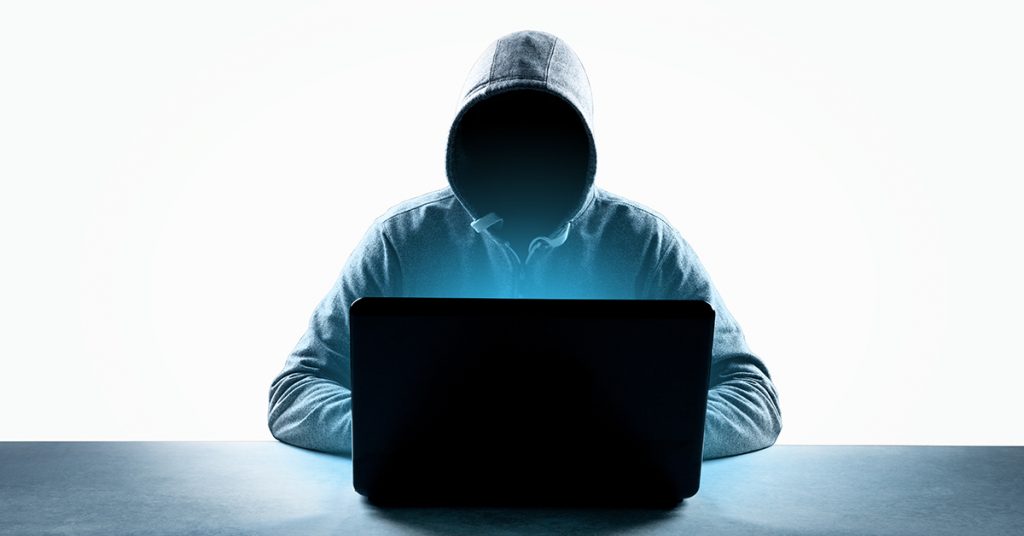
Credit card fraud was already skyrocketing in popularity in recent years, and the pandemic sent that number even higher. In fact, credit card fraud increased from 17,236 reports in the first quarter of 2015 to 45,120 reports in the same quarter of 2020, according to research conducted by Atlas VPN. That’s an increase of 161.7 percent. However, not all accusations of credit card fraud are proper, and, in some instances, you may be wrongfully accused by a party who gave verbal permission to use their card or open an account. When this happens, it’s important to discuss your defense with a fraud defense attorney in Tampa. In this brief article, we share a few tips on how to protect yourself in the event that you have been accused of credit card fraud.
Related: Credit Card Fraud: How One Swipe Can Lead to a Felony
What Constitutes Credit Card Fraud in Florida?
Florida Statute 817.61 has an extensive and comprehensive description of credit card fraud. However, in Florida, the general definition of fraudulent use of credit cards is considered an attempt to defraud a person or organization for the purpose of “obtaining money, goods, services, or anything else of value” by using a forged credit card, passing off that you’re the holder of the card, or using a card that has not been issued. Florida law considers a credit card to be a “credit card, credit plate, bank service card, banking card, check guarantee card, electronic benefits transfer (EBT) card, or debit card or by any other name.”
Under Florida law, committing credit card fraud two or fewer times in any six-month period to obtain money, goods, or services valued at less than $100 is a first-degree misdemeanor punishable by up to a one-year prison sentence and $1,000 fine. Thus, if over a six-month period of time, a person were to commit credit card fraud two or more times to obtain money, goods, or services valued at greater than $100, they would be charged with a third-degree felony punishable by up to a five-year prison sentence and $5,000 fine.
Tips to Protect Yourself Against Fraud Accusations
As you may have noticed in the definition of fraud above, attempting to pass as the holder of the card or using a card not issued qualifies as credit card fraud. However, the burden of proof lies on the prosecutor. This means that it must be proven that you did not have permission, or likely would not have had permission, to use the card in question. This is especially important when using a business card or a personal card for business purchases.
There are a few things you can do to protect yourself against these accusations, including:
- Staying away from verbal agreements to charge purchases to a card that is not yours
- Maintaining all signatures and documentation from the cardholder
- Keeping receipts for any purchases that may be in question to prove they were purchased with the cardholder’s permission
Related: 8 Ways You Can Be Accused of Fraud
What Should You Do If Accused of Credit Card Fraud?
If you have been accused of committing credit card fraud, you should contact a fraud defense lawyer in Tampa with The Rickman Law Firm as soon as possible. A skilled attorney will answer all of your questions and discuss the best defense for your unique case.
For a free consultation with a fraud defense lawyer in Tampa, please contact The Rickman Law Firm today.
Disclaimer: The information contained in this article is for general educational information only. This information does not constitute legal advice, is not intended to constitute legal advice, nor should it be relied upon as legal advice for your specific factual pattern or situation.
Why Hiring a Criminal Defense Lawyer Does NOT Mean You’re a Criminal
Everyone makes mistakes. Making mistakes does not inherently make you a criminal. In the same way, some people will face trouble with the law, and asking for help in those situations does not make you a criminal. Still, hiring a criminal defense lawyer often carries a stigma of guilt, leading to thousands of people in Florida each year facing criminal charges with no legal representation, according to recent statistics.
In this article, a criminal lawyer in Tampa with The Rickman Law Firm shares the top three reasons that you should hire a criminal defense attorney, none of which include you being a criminal.
Related: Uncertain Times May Lead to More Wrongful Convictions
Criminal Defense Attorneys Have Intimate Knowledge of the Court System
When you are navigating any type of court case, criminal or civil, the procedures are complex. Criminal lawyers in Tampa have an intimate working knowledge of the law and, beyond simply knowing the law in and out, understand the rules and procedures required. They will help you navigate the court system and understand your best options for your defense as well as ways to negotiate in sentencing, should your case get that far.
Criminal Defense Lawyers Are Committed to Understanding Your Case
Your case is not one-size-fits-all. There are likely subtle nuances to your case that, when understood fully, can mean the difference between fines and jail time and freedom. A criminal lawyer in Tampa will be fully committed to understanding your case and how the facts of your case, evidence, and other factors can be used to your advantage. This is especially important when thinking about the stigma of hiring a defense attorney. A defense lawyer who fully understands your case can give you an edge that you desperately need to prove that you are not a criminal.
Criminal Defense Lawyers Can Give You Peace of Mind
Beyond simply walking you through the process and fully understanding your case, your attorney can give you peace of mind. An experienced attorney will have spent years handling cases just like your own, and, throughout your case, you can have peace of mind knowing that you do not have to figure out how to defend yourself. After the case is resolved, your attorney can help you get back on your feet and familiarize yourself with all of the resources available to you.
Whether or not you are actually guilty of committing a crime, don’t let the stigma of hiring a criminal defense lawyer hold you back from protecting yourself. Contact a criminal lawyer in Tampa with The Rickman Law Firm to discuss the best possible defense for your specific case. Your attorney will help you navigate the complexities of the court system so that you do not lose valuable time with your family or your workplace and keep your case moving while you focus on what really matters to you.
For a free consultation with a criminal lawyer in Tampa, please contact The Rickman Law Firm today.
Disclaimer: The information contained in this article is for general educational information only. This information does not constitute legal advice, is not intended to constitute legal advice, nor should it be relied upon as legal advice for your specific factual pattern or situation.
Do Probations Officers Have the Final Say in Violation Accusations?
When facing accusations of violation of probation (VOP) by your probation officer, it can often feel like “he said, she said.” It can be difficult enough to understand your rights when you are on probation and, when dealing with a probation officer who you don’t feel has your best interest at heart, you might begin to feel that you do not have options to defend yourself.
That’s why, if you have been accused of a violation of probation, it’s important to contact one of the probation violation lawyers in Tampa with The Rickman Law Firm as soon as possible to protect your rights. Below, we’ll go over just a few of the things you should understand to protect yourself.
Related: Has Your Probation Officer Accused You of Violating Your Probation?
What Constitutes a Violation of Probation in Florida?
Florida law defines a violation of probation as an instance that occurs when a defendant willfully and substantially fails to comply with the terms and conditions of his or her probationary sentence. Whether a violation was both willful and substantial in nature depends on the facts of each individual case and must be proven by the state by the “greater weight of the evidence.”
For example, if a term of probation is that you cannot have alcohol, but you are caught drinking, that is a willful and substantial failure to comply with the terms of your probation. However, failing to comply for reasons such as mental illness, physical illness, or unemployment (in the case of repaying restitution) does not constitute willful or substantial failure.
Some of the most common ways that probation is violated include:
- Testing positive for a controlled substance;
- Failing to complete a rehabilitation program;
- Getting arrested for new or unrelated crimes;
- Failing to meet certain legally required financial obligations; or
- Missing an appointment with a probation officer without a valid excuse.
Who Determines the Punishment for Probation Violation?
In short, your probation officer does not have the final say in an accusation of VOP. Although your probation officer may have been the one to inform you that you are in violation of probation, it’s actually the prosecutor who must prove that you have willfully and substantially failed to comply.
However, despite the absence of a stringent court process, VOP cases are governed by much more strict standards. Under these rules, a Florida prosecutor must only prove that you more than likely violated your probation. Should there be a 51 percent likelihood that you are guilty of the violation, you can be found guilty.
What Can You Do If You Feel a Probation Officer is Unfairly Targeting You?
Whether or not you feel your probation officer is unfairly targeting you, you should contact a probation violation attorney in Tampa with The Rickman Law Firm. An attorney will help mount your defense to prove that your violation was not willful or substantial and provide sound proof and reasoning to change probation officers or file a complaint if you feel targeted.
For a free consultation with one of the probation violation lawyers in Tampa, please contact The Rickman Law Firm today.
Disclaimer: The information contained in this article is for general educational information only. This information does not constitute legal advice, is not intended to constitute legal advice, nor should it be relied upon as legal advice for your specific factual pattern or situation.
Ways to Protect Yourself from Accusations of PPP Loan Fraud
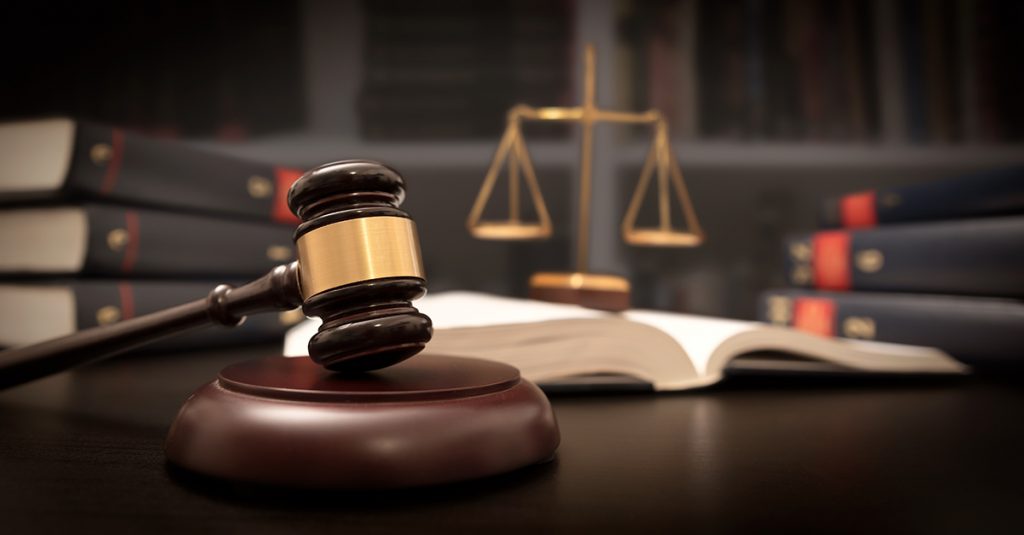
Businesses across the U.S. are being audited after receiving loans through the Paycheck Protection Program (PPP). Despite not doing anything wrong, your business may be questioned or investigated. Any business that submitted a PPP application and/or received a PPP loan should be aware of the program’s requirements and the various circumstances that may raise a red flag in the eyes of a federal investigator.
If your company is being audited or investigated for PPP load fraud, it’s important that you contact a PPP loan fraud defense attorney in Tampa with The Rickman Law Firm as soon as possible. If you are considering filing for a PPP loan, there are a few key things to do to safeguard your business from negative accusations.
What Is a PPP Loan?
The Paycheck Protection Program (PPP) was passed by Congress as part of the Coronavirus Aids, Relief, and Economic Security (CARES) Act in March 2020 and was renewed in December 2020. The program was designed to provide forgivable loans to small businesses during this period of economic uncertainty that could be used to cover payroll costs, mortgage, interest, rent, and utility costs over the period the loan was made.
Unfortunately, the program has experienced an overwhelming number of applications and, with the combination of rapidly evolving regulatory requirements and loopholes, many business owners who received PPP loans are now at risk of federal investigation and severe criminal penalties over allegations of PPP loan fraud.
Simple Steps To Protect Your Business
Although it may seem like a trap to audit and investigate your business, there are still ways to obtain a PPP loan while safeguarding your business. These steps include the following:
- Provide correct information to the best of your ability on your application.
- Maintain and save copies of all supporting documentation issued in the loan application.
- There’s no better way to prove that you were acting in good faith than to keep an ongoing record that you were attempting to diligently follow program requirements.
- Do not apply for PPP loans from multiple lenders.
- Ensure that the PPP loan money is only used for interest, rent payments, utility costs, insurance premiums, and payroll expenses. Do not use the funds for any other reason.
What to Do If Accused of PPP Loan Fraud
Although PPP loan fraud investigations are on the rise across America, there is no regulation or statute specifically prohibiting PPP fraud. Instead, the laws surrounding PPP loans fall under three major categories:
- Fraudulent Use of PPP Funding
- Loan Certification Fraud
- Application Fraud
If you or your company is targeted in a PPP loan fraud audit or investigation for any reason, even if not listed above, the most important thing you can do is to hire a PPP loan fraud law firm in Tampa like The Rickman Law Firm.
We handle and represent clients caught in COVID-19 pandemic-related legal issues on a daily basis and will act quickly to protect your interests and fight potential charges. The burden of proof rests on the federal government to demonstrate that you were acting in bad faith when applying for PPP loans, completing forgiveness certification, or using the PPP loan funding. Maintaining a thorough trail of your application process and spending these funds under the supervision of a PPP loan fraud defense attorney in Tampa will prove crucial in defending your case.
For a free consultation with a PPP loan fraud defense attorney in Tampa, please contact The Rickman Law Firm today.
Disclaimer: The information contained in this article is for general educational information only. This information does not constitute legal advice, is not intended to constitute legal advice, nor should it be relied upon as legal advice for your specific factual pattern or situation.
Does Carrying Legally Obtained Marijuana Constitute Drug Trafficking?
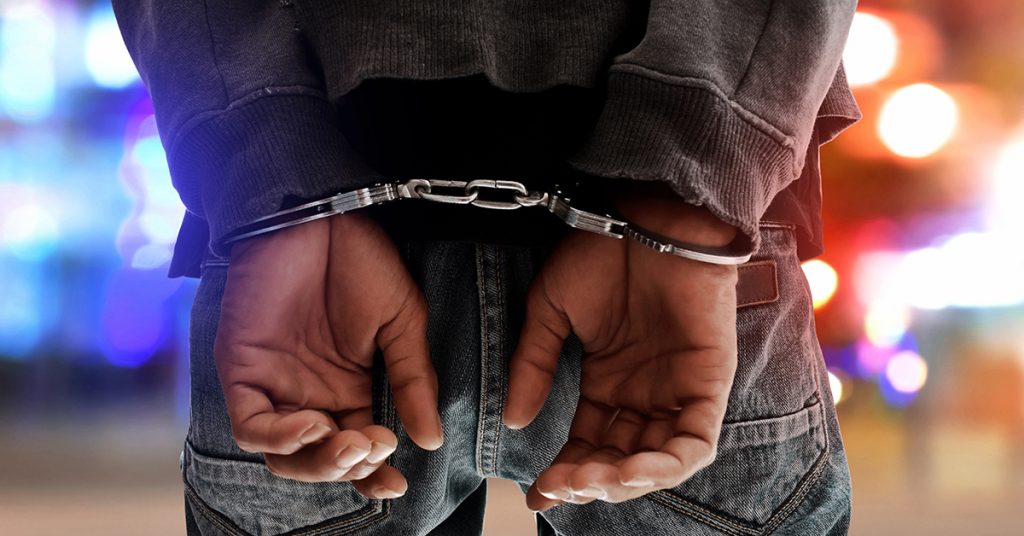
With the changes in the legality of marijuana and the differences between states, it can be tricky to understand what constitutes drug trafficking. You may have legally obtained marijuana in one state only to find traveling with it may pose some legal issues. Before you travel with marijuana, even if legally obtained, it’s important to understand where Florida law stands.
In this brief article, a drug trafficking defense lawyer in Tampa with The Rickman Law Firm discusses key things to keep in mind if traveling with legally obtained marijuana.
Related: When is Medical Marijuana Use Illegal in Florida?
Is Legally Obtained Marijuana Still Legal Across State Lines?
The short answer to this question is: no. Because marijuana is still illegal at the federal level, crossing state lines with it in any form enters federal jurisdiction. Federal law classifies marijuana as a Schedule 1 drug. Drugs, substances, and chemicals with this classification are defined as having “no currently accepted medical use and a high potential for abuse.” For this reason, it’s not legal to transport legally obtained marijuana across state lines.
But what if you obtained the marijuana legally in a state like Florida, where you have a medical marijuana card, and travel somewhere it is also legal? Still, the answer is likely no — at least in Florida, it is a no-go. This is because, in order to avoid federal intervention, legal marijuana must follow very strict specific standards. It must be locally grown to be used and sold locally. Even if you have a medical marijuana card, it is, unfortunately, not transferable the same way any other license (like a driver’s license, for example) would be. If you are caught transporting marijuana across state lines, even if obtained legally, you may be charged with drug trafficking. This is a serious charge which can result in fines and jail time.
Related: The Gray Area of Drug Trafficking Laws
What If You Need Medical Marijuana During Travel?
It’s illegal to bring marijuana in any form on a plane because planes are governed by federal law, in which all forms of marijuana are illegal. Although TSA agents are not necessarily looking for marijuana, they must report it to the police, even if you have a medical marijuana card.
You may, however, be permitted to travel with hemp-based CBD oil, so long as it has less than 0.3 percent THC and is within the permissible amount of 3 ounces or less for carry-on bags.
Related: The Penalties for Drug Trafficking in Florida
What to Do If Accused of Drug Trafficking Legal Marijuana
If you find yourself accused of drug trafficking, even if you are a user of legally obtained medical cannabis, it’s critical to contact a drug defense attorney in Tampa with The Rickman Law Firm. An attorney will be able to thoroughly discuss all of your legal options and craft the best possible defense for your unique situation.
For a free consultation with a drug trafficking defense lawyer in Tampa, please contact The Rickman Law Firm today.
Disclaimer: The information contained in this article is for general educational information only. This information does not constitute legal advice, is not intended to constitute legal advice, nor should it be relied upon as legal advice for your specific factual pattern or situation.